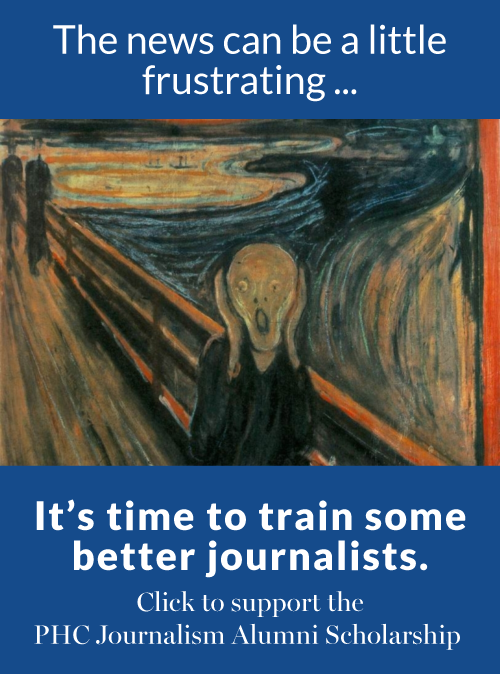
Despite the long — and sometimes thankless — hours, the breathless pace that accompanies breaking news, and the emotional heaviness that often comes from searching for and dealing with the facts, journalism is an incredibly rewarding field that is worthwhile for a Christian to pursue. Here are some practical and philosophical tips for you to keep in mind as you seek to thrive in the world of political journalism:
Practical tips for aspiring political journalists:
Always keep your resume updated and ready go. The professional and political landscapes are shifting constantly, and you really will never know when a key job opportunity may arise or when you may need to begin seeking a new job. Always keep your options open and be prepared to tailor your resume for the specific area in journalism for which you are applying.
Be prepared to work weekends and evenings and odd sets of hours in between. Journalism isn’t a 9 a.m. — 5 p.m. field by any stretch of the imagination, and the news cycle always marches on, regardless of your set work schedule. Newer hires often tend to work the less desirable shifts or are hired specifically to do so. My first two jobs required me to work weekend shifts. The work day often doesn't end when it officially is supposed to because of extra assignments, longer pieces, or breaking news. Give your schedule as much flexibility as possible, keep work days open for extra or prolonged assignments, and make the most of your off days by enjoying them and preparing for the busy week ahead. Use the time for yourself, your family, your friends, and your hobbies. You’ll need it.
When your editor or supervisor asks you to do something, always be prepared to say yes whenever possible. If your supervisor asks you if you’re available to work later and cover an evening story, say yes. If your supervisor asks for volunteers to cover a story or event, always volunteer. Show initiative in your work and and be a team player. This will make you invaluable to both your supervisor and your employer alike and will placate them when you actually do have to say no. Take the initiative and volunteer to attend and cover important events — even if they happen to occur on your off days.
Be willing to try new things and step out of your comfort zone. If your editor asks to you to cover a topic that you have little to no experience writing about, do it and relish the researching process. Attend political events, discussions and conferences whenever possible — even if they involve topics for which you don’t particularly care. Networking is key; make sure to seek out new sources while still touching base now and then with the ones you already have. If you build a successful working relationship with sources, they may even be inclined to offer you a tip for an exclusive story. Networking with other media personnel is also important because you never know where they — or you — will end up in the next year or so.
Philosophical tips for how aspiring Christian journalists should approach covering politics:
Political journalists are watchdogs meant to hold those in elected offices accountable to the people, and Christian journalists owe their primary allegiance to God and to the truth. Political ideology, though important from both a personal and business-model standpoint, can never overshadow your primary commitments. Your faith need not conflict with your commitment to journalistic objectivity, skepticism, and the pursuit of the facts — no matter what the world may try to tell you.
Politics can be an incredibly bitter and divisive field, and it can be difficult to avoid succumbing to cynicism when covering the hot-button topics driving national discourse today. But journalists have a special purpose in their work. The world desperately is in need of the truth, and one of a journalist’s highest honors is to shed light on the facts as they are and aid in dispelling the darkness.
There is an inherent, connective power within stories that transcends backgrounds, experiences and individual differences because each person shares in humanity’s redemptive story. Stories have the power to unite or divide, and Christian journalists should approach their assignments with a Biblically-based framework recognizing hope in the face of despair, love in response to hate, and faith that surpasses suffering. If you can view your work through a redemptive lens, it will help to mitigate the negative effects attempting to drain and discourage you.



.jpg?width=500&name=Copy%20of%20Desktop%20Wallpaper%20%E2%80%93%20Untitled%20Design%20(3).jpg)




